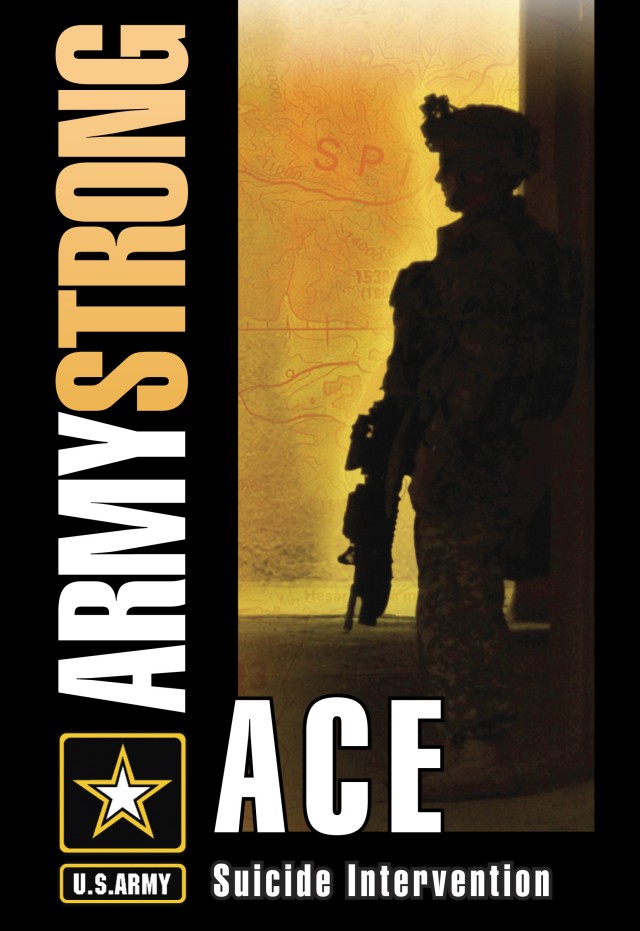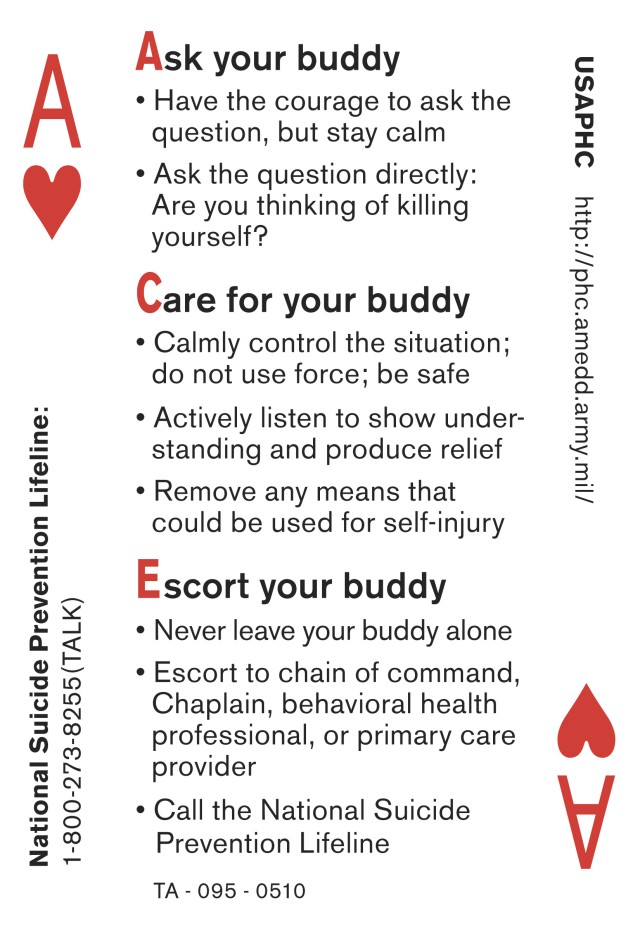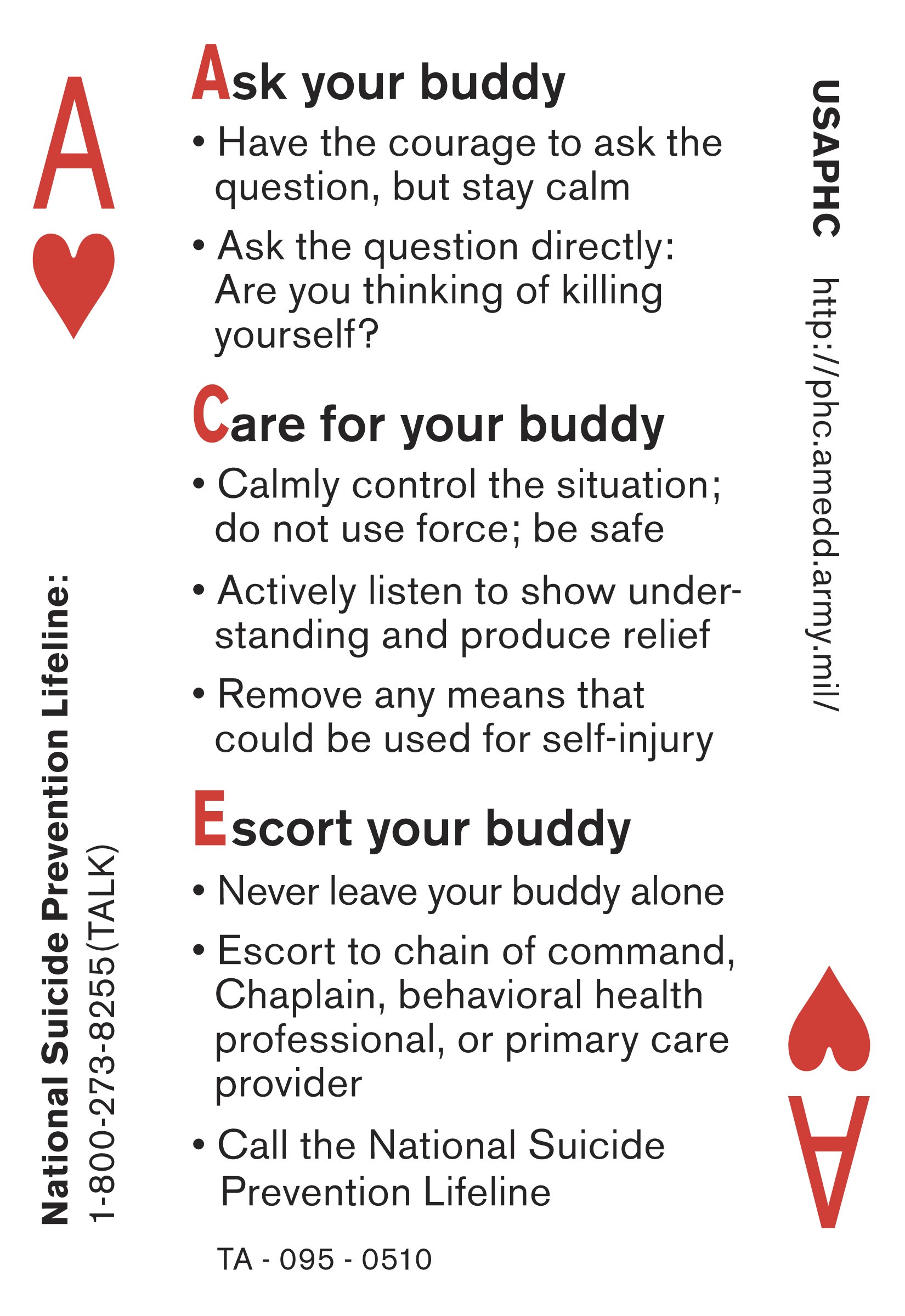The Army ACE Suicide Intervention Training Program, developed by U.S. Army Public Health Command (Provisional) behavioral health experts, was evaluated by a panel of suicide prevention experts and is now listed in the Suicide Prevention Resource Center and American Foundation Best Practice Registry for Suicide Prevention.
The best practices registry is an independent organization supported by a grant from the Substance Abuse and Mental Health Services Administration, U.S. Department of Health and Human Services. Three suicide prevention experts reviewed the ACE suicide intervention program and found that it met standards of accuracy, safety, adherence to prevention program guidelines and likelihood of meeting the goals and objectives of the National Strategy for Suicide Prevention.
ACE was created in response to an Army leadership request to develop a Soldier-specific suicide intervention skills training support package for Army-wide distribution, according to James Cartwright, social worker with the USAPHC Directorate of Health Promotion and Wellness.
The program is based on research literature and has undergone a process of testing and revision that included focus group interviews and pilot testing to determine training utility and feasibility. ACE has been reviewed by Army Medical Command personnel and Army G-1, the Army's proponent for suicide training, for applicability and was approved for Army-wide training by the Army Task Force on Suicide Prevention, Cartwright said.
ACE is a four-hour training that provides Soldiers with the awareness, knowledge and skills necessary to intervene with those at risk for suicide. It includes suicide awareness, warning signs, risk factors and intervention skills development.
ACE stands for "Ask, Care and Escort." It encourages Soldiers to directly and honestly question any battle buddy who exhibits suicidal behavior. The Soldier should ASK the battle buddy whether he or she is suicidal, CARE for the battle buddy and ESCORT the battle buddy to the source of professional help, Cartwright explained.
"This training helps Soldiers and others who have taken it to be aware of warning signs exhibited by a battle buddy who is hurting and ... intervene before a suicidal crisis," according to Lt. Col. Scott Weichl, USAPHC (Prov) chaplain.
ACE program materials include a trainer's manual, PowerPoint slides with embedded video messages, suicide prevention tip cards listing risk factors and warning signs for suicide, and ACE wallet cards (with simple directions for identifying and intervening with those at risk).
Cartwright explained that the material is easily taught, and all Soldiers are encouraged to receive the training. He said that part of the training is a role-playing exercise that provides participants a chance to practice the intervention skills they learn in the training. The role-playing requires Soldiers to imagine that they are in a suicidal situation, and they have to use their skills to save a life.
"Get involved! Don't let your battle buddy die by suicide," Weichl said as he stressed the importance of the training.
ACE cards and other suicide training materials are available to units through the USAPHC online shopping cart at http://phc.amedd.army.mil/home/.
Links to AKO-based training also are available on the site.




Social Sharing